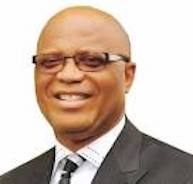Education
Immorality in Schools: Stakeholders Advocate Monitoring, Protection Measures 

Some stakeholders in the South East have advocated the introduction of strong child monitoring and protection measures in primary and post-primary schools across the country to curb immorality.
They made the call in Enugu, while speaking to newsmen on the aftermath of the incidents in Chrisland School and Dowen College.
A Guidance Counsellor in Abia, Mrs Chinememma Umesiaka, said that monitoring and counselling were two strategic means of instilling discipline and good behaviour in children.
Umesiaka, an aide to Gov. Okezie Ikpeazu of Abia on Teenage Matters, underscored the need for stakeholders in responsible parenting to assist parents to monitor the activities of children on the social media.
“Social media have become a huge threat to the mental health and general wellbeing of our teens because they are replete with fake lifestyles and children are incapable of filtering reality from make-believe.
“They follow a lot of celebrities whose morals are nothing to write home about and end up questioning everything they are taught at home, especially when they consider those celebrities as being better off.
“Our teens spend unbelievable amount of time on social media to the extent of depriving themselves of sleep, which definitely affects their health,” she said.
A Child Rights Advocate, Miss Onyinyechi Nwosu, described responsible parenting as the act of raising up children with positive values and character, helping them to develop healthy self-esteem.
Nwosu said that children were usually exposed to a lot of negative influences, especially during their adolescence “due to negative peer pressure and exposure to information that were not age-appropriate”.
She, therefore, urged stakeholders to play active role in giving responsible parenting to children they interacted with toward making a better society.
A public affairs analyst in Umuahia, Mr Godson Adiele, spoke of the need for parents to devote more of their time and resources toward ensuring that their children were properly brought up with the right values and acceptable behaviour.
Adiele said that in the African tradition, parenting was not the exclusive responsibility of parents but included the entire community, teachers in schools as well as other guardians and custodians.
“This is because in our own clime, parents cannot always be with their children.
“At such times when parents are away from home or the children are gone to school, the teachers, guardians and custodians take over the job of parenting,” he said.
A parent, Mrs Ngozi Eze, blamed the pre-teen sex scandal in Chrisland School, Lagos on the failure in value system.
“What happened in that school is a product of societal decay.
Another parent, Mrs Caroline Uzondu, called for the strengthening of a legal framework that would provide for severe punishment against the circulation of pornography.
“In Lagos State for instance, circulation of pornographic materials attracts a penalty of 14 years imprisonment.
“Such laws should be enacted or strengthened in all states of the federation, because adolescent sexuality is on the rise in the country,” she said.
A teacher, Mr James Iroegbu, noted that parents had abdicated their responsibilities for schools.
Iroegbu regretted that most parents did not know what was going on with their children any longer, neither did they visit their schools to monitor what they do.
“When I was teaching in Lagos, I once caught my pupil, an eight-year-old in the classroom with an adult film jacket. Her classmates gathered around and were looking at the pictures together.
“The girl confessed to me that she sneaked it from the parents’ room.”
In Imo, stakeholders called for more focus on moral instructions in schools as well as the reintroduction of club activities.
Mrs Maria Udechukwu, a mother of four, who said this would help in instilling the right values in children, blamed the issues related to immorality among children and teens on improper guidance on the part of parents.
Also contributing, a teacher, Mr Jude Ugoh stated that parents should support schools in disciplinary efforts and not try to encourage bad behaviour in their children.
Ugoh noted that while some schools went overboard in discipline of students, some parents insisted on shielding their children from consequences of their actions.In Anambra, Mrs Mary Abazu, a teacher at Igwebueze Primary School, Ifite Awka, said that it was more tedious on them at the primary level in moulding pupils.
“Some parents just believe that once school fees are paid, it solely behoves on teachers to make the pupils better.
“But it is not true for we teachers have at most, eight hours to spend with pupils, and the rest hours at home,” she said.
Mrs Cordelia Maduka, a civil servant, on her part said that most parents should be blamed for the misdemeanor being exhibited by most children and should be stopped.
“A situation whereby parents buy their children android phone without monitoring their activities on the phone calls for questioning.
“Some parents even go as far as threatening teachers when their wards are disciplined, then how can such child not be wayward?” She asked.
Mr Nnamdi Nwafam, a parent, called on schools to impose stiffer punishment on pupils, students that went contrary to laid down school rules.
“In most schools, hardly do they enforce discipline; in some cases, school teachers pay lip services to their profession by just giving students notes to copy without teaching them.”(NAN)
Education
How female Medicine Degree Holder Abandoned Certificate for Carpentry- Bugaje

The Executive Secretary, National Board for Technical Education (NBTE), Prof. Idris Bugaje has expressed the need to promote inclusivity, especially for women and persons with disabilities in technical education.
Bugaje stated this in Abuja while assessing the impact of President Bola Tinubu’s administration after two years in office.
He appealed for greater gender inclusivity in vocational and technical education, stressing that deliberate policies such as scholarships and incentives could help bridge the gender gap.
In support of his position, Bugaje shared an inspiring story of a female medical doctor who abandoned her medical career to pursue carpentry.
“There is a story I want to share with you, about a girl who was interested in becoming a carpenter.
“The father was a carpenter and they were four children in the family, three boys and herself.
“Whenever she joined the boys to the workshop, the father would send her away, saying, `you are a girl, go back to the house, you are not supposed to be a carpenter’’.
“Without giving considerations to the passion of the young girl, the father sent her to a medical school.
“She graduated with the MBBS, went and did the one-year internship after graduation, and chose a role as a medical doctor.
“After that, she came back to the father, returned the MBBS certificate to him, and thanked him.
“Afterward, she told the father that her passion is in carpentry, not to practice as medical doctor,” Bugaje narrated
He added that after spending seven years on medical training, the father had no option but to send her to Turkey to learn how to make furniture.
Addressing cultural and societal barriers often faced by young women in technical fields, Bugaje appealed to parents to support their daughters’ interests in trades like plumbing, electrical installation, and carpentry.
He also called on policymakers to prioritise passion and skill development among youth, especially girls, noting that such encouragement could lead to greater innovation and self-reliance.
“If they want to become carpenters, ICT experts, or POP artists, allow them.
“In skills’ training, passion is very important. That’s what motivates children and helps them innovate.
“We need to harness these innovations if the country is to move forward and rise beyond being a third-world nation,” he said.
He emphasized the need to have deliberate policies to encourage women to come into TVET through scholarships and other incentives. (NAN)
Education
WAEC Apologies for Conducting English Exam Late, Cites Leakage Prevention

The West African Examinations Council (WAEC) has apologized for delay in conducting English Language Paper 2 in the ongoing 2025 West African Senior School Certificate Examination (WASSCE).
The took place on Wednesday evening.
In a statement by Moyosola Adesina, Acting Head of Public Affairs Department of
WAEC, the council said that it encountered challenges.
”While maintaining the integrity and security of our examination, we faced considerable challenges primarily due to our major aim of preventing leakage of any paper.
“We recognise the importance of timely conduct of examinations and the impact of this decision on candidates, their schools and parents, and we sincerely apologise for any inconveniences caused,” WAEC stated.
It said that it successfully achieved its objective but it inadvertently impacted the timeliness and seamless conduct of the examination.
“In spite of our best efforts, we encountered logistical hurdles, security concerns and socio-cultural factors that negatively influenced our operations,” WAEC said.
The council re-affirmed its commitment to upholding the highest standard in examination conduct, and pledged to continue to promote academic excellence. (NAN)
Education
FG vows full WAEC CBT shift by 2026 – Minister

The Minister of Education, Dr Tunji Alausa, has reaffirmed the Federal Government’s commitment to fully transitioning to Computer-Based Test (CBT) examinations for the West African Examinations Council (WAEC) and other exam bodies by 2026.
Dr Alausa made this known while monitoring the conduct of WAEC’s CBT examinations in Abuja on Wednesday.
He expressed optimism about Nigeria’s capacity to modernise its examination system and reduce widespread malpractice through digital innovation.
Commending WAEC’s initiative, the minister described the shift from traditional pen-and-paper exams to CBT as a historic and crucial step toward fairness and educational integrity.
“We are working very hard to eliminate fraud in our exam system, and WAEC is taking the lead,” he said.
Highlighting the advantages of CBT, Alausa noted that the system simplified the exam process while significantly curbing cheating.
“We now have clear evidence that when exams are done using technology, the level of fraud is minimised to almost zero,” he stated.
He further lauded WAEC’s internal safeguards, explaining that the CBT system was operated via a secured Local Area Network (LAN), making it “literally impossible” to hack.
According to the minister, by Nov. 2025, all WAEC multiple-choice exams will be conducted using CBT.
He added that essay questions and NECO examinations would follow suit by 2026.
On infrastructure and logistics, particularly in remote areas, Alausa acknowledged the challenges but assured that scalable solutions are in progress.
“Are we going to be ready to provide every single needed infrastructure by November? Absolutely not.
“But as we move into the future, we will be ready. We have to challenge ourselves as government,” he said.
He also addressed concerns over the logistics of conducting multiple exams.
“In WAEC, the average student takes about eight to nine papers.
“They do it over several days. Those are the logistics we, as administrators, have to work through, and we already are,” he explained.
The ongoing WAEC exams, which began on April 24, are scheduled to conclude on June 20, 2025.
A total of 1,973,253 candidates from 23,554 schools are participating. Of this number, 979,228 candidates are male, accounting for 49.63 per cent, while 994,025 candidates are female, making up 50.37 per cent.(NAN)






















